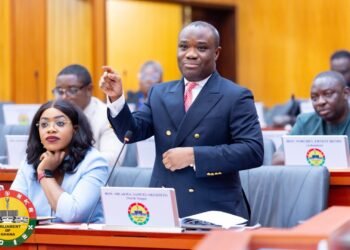On Thursday 21 September, 2023, Ghana commemorated the 114th posthumous birthday of its founder and first President, Dr. Kwame Nkrumah. On the same day, hundreds of Ghanaians gathered in Accra, the nation’s capital to protest against what it described as the current administration’s poor economic management.
Until the review of the Public Holiday Amendment Act in March 2019, 21st September used to be Founder’s Day and was observed yearly to plaudit Dr. Kwame Nkrumah for his steering leadership towards the independence of Ghana. Under Nkrumah’s leadership, Ghana witnessed phenomenal development that transformed the nation into a beacon of Hope and limitless potential.
Unlike other African countries, Ghana at independence had an economy that appeared stable and prosperous being the world’s leading producer of cocoa and an external reserve of about 200m pounds.
Truth is unlike Ghana, Botswana for instance, on the other hand appeared to be the poorest country at independence with a GDP per capita of about US$70 per year. Interestingly Botswana a poor country at independence has now transformed itself into an upper-middle-income country as one of the world’s fastest-growing economies. Botswana’s GDP per capita for 2022 was $7,738, a 6.89% increase from 2021 which is one of the highest in Africa.
According to the World Bank, significant mineral (diamond) wealth, robust institutions, and prudent economic management are what have made Botswana an upper-middle-income country with an aspiration of becoming a high-income country.
The World Bank’s Human Capital Index (HCI) scores Botswana at 0.41 (2020). It means that a child born in Botswana today will be 41% as productive when he/she grows up as he/she could be if he/she enjoyed complete education and full health. This is at a par with the average for the Sub-Saharan Africa region.
Education expenditure in Botswana is among the highest in the world and includes the provision of nearly universal free primary education.
Has Ghana, The Once Africa’s Beacon Of Hope Fallen?
Ghana’s development story today despairs hope for both the present and the future. According to Bloomberg despite Ghana’s position as the world’s second-biggest cocoa producer, and first leading producer of gold among other natural resources including oil, its currency was adjudicated the worst performing currency (cedi) slumping to a more than 45% loss, the worst among over 140 currencies.
By December 2022, the Ghana cedi had depreciated by 55% against the United States Dollar, Ghana’s major trading currency. Similarly, Ghana’s debt-to-GDP ratio had reached 105% by the end of 2022 with Ghana defaulting on its external debt obligations, leading to the lowest ever downgrade of the economy by International Credit Rating Agencies. This led to the country’s first-ever debt restructuring since independence.
After swearing the oath of no return, the country has secured US$3 billion through a three-year arrangement under an Extended Credit Facility with the International Monetary Fund. It is the 17th time the country has gone to the Fund.
Truth is all Ghanaians are bearing the consequences of what the Democracy Hub, the champions of the #OccupyJulorBiHouse Protest described as the “poor management of the Ghanaian economy”. From a declining public education to an over-hanged and unsustainable public debt, a domestic debt exchange programme, poor road infrastructure, a depleting environment, poor public health system and a broken social and moral fibre. This is Ghana’s scorecard!
The question then is what has Ghana not done right? Why a country endowed with so many resources does appear falling? Is it not worrying that after nearly 66 years of independence, Dr Kwame Nkrumah is still adjudged as the country’s most visionary and transformational leader?
Everything they often say starts and ends with leadership. Leadership has been the major bane to Ghana’s progress and development. Ghana’s leaders after Nkrumah have over time lacked the foresight to help the country avoid the “resource curse”. Minerals wealth has been squandered while public funds have been mostly misapplied and misused.
Most successive leaders after Nkrumah lack the clarity of vision to prioritize development. Quite fascinating, political leaders in opposition tell and always preach about remedies to problems but forget when they are in government.
The remedies to the country’s problems appear in the textbooks from its basic schools to its tertiary institutions. The country’s economic problems and solutions are available in university dissertations and policy documents from the World Bank to the IMF. They are even written better by nations that were once like Ghana, but which now lends to Ghana.
So it is obvious that Ghana does not lack the solutions to its problems. What Ghana has lacked are visionary and transformational leaders. What Ghana needs are leaders who are custodians of its values, virtues, principles, attitudes and characters. If the country gets such leaders, Ghana will progress and see development.
READ ALSO: NPP Police And NDC Judge, The Dividends of Ghana’s Partisan Politics























